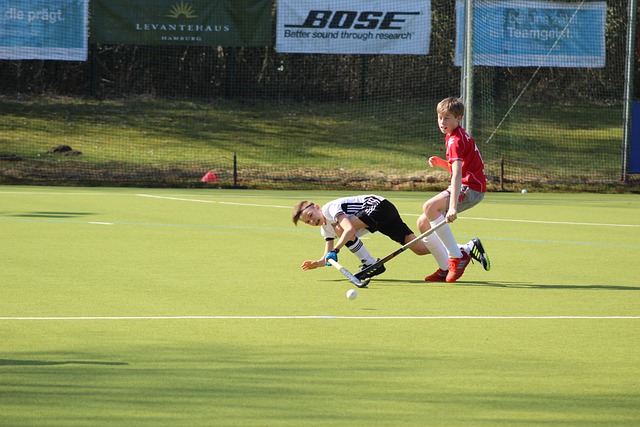Oregon's Department of Human Services (DHS) adopts a strategic, evidence-based approach to child welfare, addressing each case uniquely. They prioritize early intervention through services like family counseling and emergency placement. Case managers work closely with families, fostering resilience and self-sufficiency. The initial report stage involves assessment and investigation by social workers, leading to tailored strategies based on findings. These strategies may include voluntary services, in-home support, or foster care removal. Court collaboration ensures permanency planning for at-risk children, while post-case management offers continuous support for families. The key focus is on positive outcomes, aiming to prevent future interventions.
In Oregon, the Department of Human Services (DHS) plays a pivotal role in child welfare, implementing comprehensive strategies to ensure the safety and well-being of children. This article delves into the intricate processes that shape Oregon DHS child welfare case procedures. From initial reports and investigations to assessment, case planning, court involvement, and post-case management, each phase is designed to foster stability and permanent solutions for vulnerable youth. Understanding these strategies is crucial for navigating the complex landscape of child welfare case interventions.
- Understanding Oregon DHS Child Welfare Case Strategies
- Initial Report and Investigation Process
- Assessment and Case Planning Phases
- Court Involvement and Permanency Planning
- Post-Case Management and Support Services
Understanding Oregon DHS Child Welfare Case Strategies

Oregon’s Department of Human Services (DHS) takes a comprehensive approach to child welfare, employing strategic methods to ensure the safety and well-being of children within the state. The agency recognizes that each child welfare case is unique, requiring tailored interventions to address specific needs. By implementing evidence-based practices and continuous quality improvement, DHS aims to achieve positive outcomes for children and families involved in the system.
The child welfare case strategies in Oregon focus on a range of services, including family counseling, in-home support, and emergency placement when necessary. Case managers work collaboratively with families, providing resources and guidance while fostering resilience and self-sufficiency. These strategies prioritize early intervention, recognizing that timely support can prevent more severe issues down the line.
Initial Report and Investigation Process

In Oregon, the Department of Human Services (DHS) receives an average of 40,000 reports of suspected child abuse or neglect annually, each initiating a critical child welfare case strategy. The initial report stage involves receiving and reviewing disclosures from various sources like concerned citizens, healthcare professionals, or school staff. Once a report is filed, DHS social workers are dispatched to investigate the allegations. During this process, they assess the safety of the child(ren) in question and determine if there’s sufficient cause to proceed with further intervention based on the available evidence.
The investigation process includes interviews with family members, caregivers, and other relevant individuals, as well as a thorough examination of the home environment. DHS workers document all findings, which are then reviewed by supervisors to ensure accuracy and adherence to established child welfare case strategies. Depending on the outcome, this may lead to voluntary services, in-home support, or, if necessary, removal of the child(ren) and placement into foster care.
Assessment and Case Planning Phases

In Oregon’s Department of Human Services (DHS) child welfare system, the initial phase of a child welfare case involves a thorough assessment. This critical step includes an in-depth review of the family’s situation by trained professionals, who consider factors such as the child’s safety, risk factors, and family strengths. The goal is to gain a comprehensive understanding of the circumstances that led to the involvement of DHS and to identify any immediate concerns for the well-being of the child or children involved. This assessment serves as a foundation for developing effective case strategies.
Once the assessment is complete, the next phase focuses on case planning. Here, caseworkers collaborate with families to create tailored plans aimed at addressing identified issues and promoting stability and safety. These strategies may include referrals to specialized services, such as therapy or parenting classes, establishment of support networks, and setting measurable goals to ensure a secure family environment. Effective case planning involves empowering families with the necessary tools and resources while also monitoring progress regularly to ensure the best possible outcomes for the children involved in the child welfare system.
Court Involvement and Permanency Planning

In Oregon, when a child welfare case reaches a point where court intervention is required, the state’s Department of Human Services (DHS) works collaboratively with the judicial system to ensure the best outcomes for involved children. Court involvement in child welfare cases is a critical phase, often initiated by a petition filed by DHS or other concerned parties. This process aims to protect and promote the well-being of children who may be at risk due to abuse, neglect, or family circumstances.
Permanency planning is a central aspect of this phase, focusing on establishing stable living arrangements for children. The court plays a pivotal role in overseeing and approving case strategies proposed by DHS, which may include temporary placements, foster care, adoption, or other permanent solutions. By involving the court, Oregon DHS ensures that decisions are made in the child’s best interest, adhering to legal guidelines and standards set for child welfare practices, ultimately striving for a safe, stable, and nurturing environment for every child involved.
Post-Case Management and Support Services

After a child welfare case concludes, Oregon DHS offers post-case management and support services to ensure the well-being and stability of involved families. These services are designed to build upon the progress made during the case and prevent future intervention. Social workers work closely with families to develop individualized plans that address specific needs, focusing on areas like parenting skills development, family counseling, and access to community resources.
One key aspect is continuing support for parents, aiming to strengthen their ability to provide a safe and nurturing environment. This may include home visits, parent education classes, and regular check-ins to monitor the family’s progress and offer additional guidance or resources. By providing these child welfare case strategies, Oregon DHS aims to promote long-term positive outcomes for children and families involved in the system.
